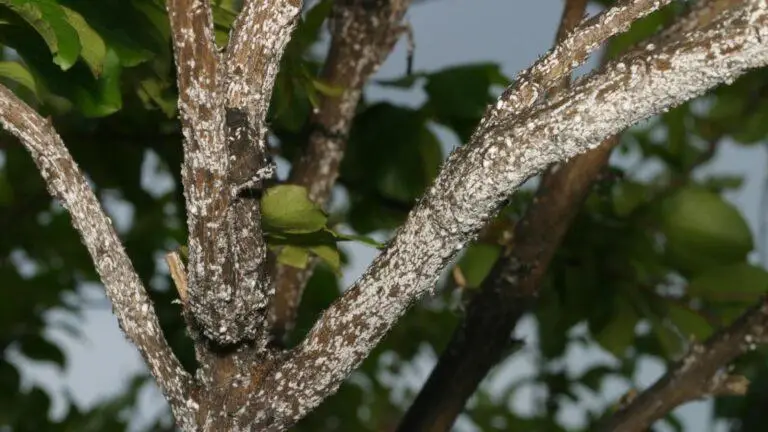Crape myrtles (Lagerstroemia sp.) are among the most beloved landscape trees in the Carolinas and throughout the Southeast. Known for their striking blooms that provide a splash of color from late spring through the end of summer, these trees are a fixture in both formal and casual landscapes. However, their widespread popularity comes with its own set of challenges. The presence of a single plant species in large numbers within an area can lead to increased pest and disease problems, which are less common in environments with greater biodiversity. Nature, as it prefers, flourishes in diversity.
Crape myrtles are not spared from their share of adversaries. Common issues such as aphids and powdery mildew are only part of the problem. Recently, a new pest has made its way to the Carolinas, causing concern for crape myrtle enthusiasts: the crape myrtle bark scale (Acanthococcus lagerstroemiae), or CMBS.
These diminutive pests, white and small, take residence on the plant from the twigs to the trunks. About the size of a pencil tip, they are mostly stationary, making it crucial to differentiate them from certain types of ladybug larvae. While both may appear similar, ladybug larvae are larger and more mobile. CMBS proliferates rapidly on an infected tree, quickly resulting in the darkening of the crape myrtle and the surrounding ground with sooty mold—a direct consequence of the honeydew produced by their feeding. Initially, this mold is more of an aesthetic issue, but as the infestation escalates, it can severely affect the health of the crape myrtle and any undergrowth.
Addressing a CMBS infestation involves a variety of treatment options, each dependent on factors such as the time of year, severity of the infestation, and specific location of the affected plants. Consulting with an ISA-certified Arborist can ensure the development of an effective treatment plan to combat CMBS and other prevalent issues, safeguarding the vitality and splendor of crape myrtles in the region.
Author:
Brandon Hogan, ISA Board Certified Master Arborist
Schneider Tree Care Charlotte






